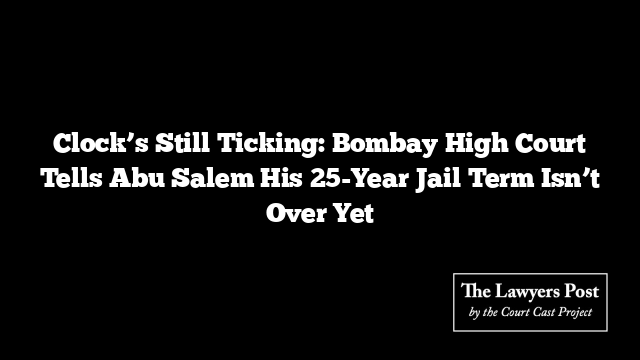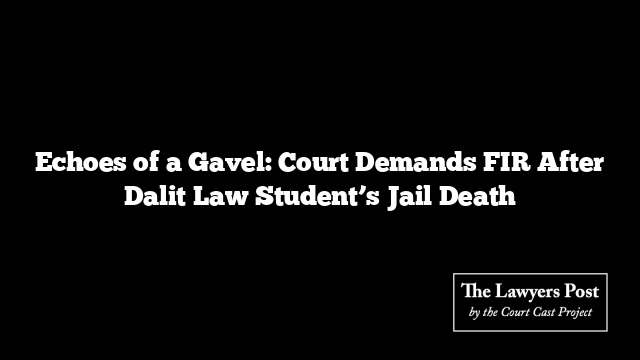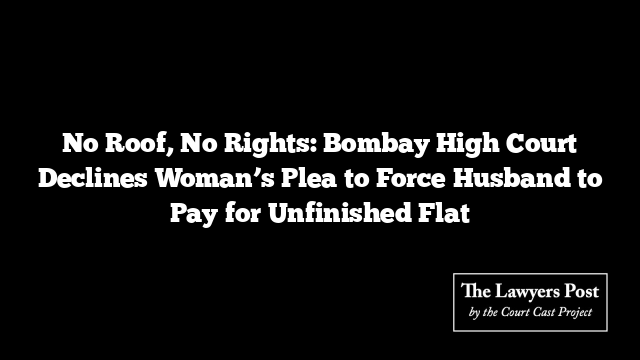The Bombay High Court has reminded gangster Abu Salem that no, his prison term isn’t up just yet—despite his claims to the contrary.
Salem, convicted in the 1993 Bombay blasts and extradited from Portugal in 2005 under tight diplomatic strings, had approached the court with a plea: he wants out, arguing that his sentence—capped at 25 years by the Supreme Court in 2022 as a condition of his extradition—had effectively run its course.
But a Division Bench of Justices AS Gadkari and Rajesh Patil wasn’t buying it. Admitting the plea but denying interim relief, the judges made it clear that Salem’s countdown started ticking from October 12, 2005—the date officially recorded in the apex court’s judgment. And by that arithmetic, the 25-year mark hasn’t arrived.
“Even with simple logic,” the Bench said, “it’s clear that 25 years are not over.”
Salem’s legal team, led by Senior Advocate Rishi Malhotra, tried to make the numbers work. They added up years he spent as an undertrial, his time as a convict in a separate TADA case, plus remission for good behavior, and even a 30-day credit for time spent in Portugal custody. Tally it all up, Malhotra argued, and Salem crosses the 25-year line.
But the Centre wasn’t impressed. Additional Solicitor General Anil Singh argued that Salem was cherry-picking timelines from different cases and stitching them together to fabricate eligibility for early release. That, Singh said, goes against the spirit—and the letter—of the Supreme Court’s ruling.
The judges agreed that if Salem truly wanted a clarification of what the top court meant back in 2022, he should knock on their doors instead.
For now, Salem remains in jail. The High Court has kept the petition alive but made one thing crystal clear: when the Supreme Court said 25 years, they meant 25 years. Not a patchwork quilt of credits and calculations.





